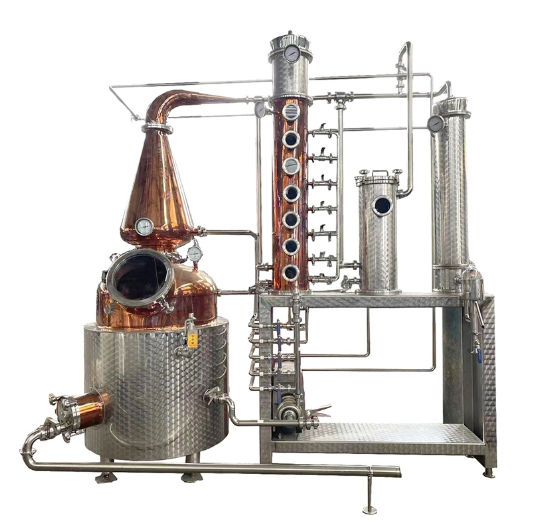
The success of any distillery—whether a small craft operation or a large commercial facility—hinges on one critical investment: high-quality distillery equipment. From mashing grains to fermenting wort and distilling pure spirits, every step relies on machinery that aligns with your production goals

Getting into distillation is exciting—but it can also be overwhelming when you first look at all the different pieces of distillery equipment on the market. From small home kits to semi‑pro craft rigs, your choices will shape safety, flavor, and how quickly you learn.

A distillery is a facility where fermented liquids are transformed into higher‑strength, refined spirits through distillation. Inside a working distillery, raw ingredients such as grains, fruits, or sugarcane are mashed, fermented, distilled, sometimes aged, and finally bottled as whiskey, gin, vodka, rum, brandy, and many other spirits. Understanding how a distillery works — and how distillery equipment is used at each stage — helps drinkers, bar owners, and aspiring producers evaluate quality and make better purchasing and investment decisions.

The art of crafting homemade spirits has captivated hobbyists and enthusiasts for generations, and building your own moonshine still stands as a rewarding blend of creativity, science, and hands-on skill. As a core piece of distillery equipment, a well-built moonshine still lets you control every step of the distillation process—from selecting ingredients to refining the final flavor of your spirits. Whether you’re drawn to the tradition of homemade moonshine or the practicality of creating your own distillery equipment, this guide will walk you through building a safe, functional moonshine still from start to finish.

An alcohol distillery is the place where your favorite whiskey, gin, vodka, rum, and other spirits begin their journey from grain, fruit, or sugar to the glass. More than just a building with shiny copper stills, a distillery is a carefully engineered facility where fermentation, distillation, aging, and bottling are combined into a controlled, repeatable process.

ZPET – China Leading Beer Equipment ManufacturerZPET is recognized as one of China's leading beer equipment manufacturers, boasting over 15 years of experience in designing and producing high-quality brewing systems. We focus on providing customized solutions for homebreweries, small breweries, and

Are you considering upgrading your brewery equipment? Red copper brewhouse equipment might be the game-changer you need. Known for its exceptional heat conductivity and antimicrobial properties, it offers unique advantages. In this article, we'll explore the pros and cons of using red copper brewhouse equipment, helping you make an informed decision for your brewery's future.

Starting a small brewery means you must pick the right tools. You need brewing equipment like a brewhouse system, fermentation tanks, and chillers. Many small breweries use manual systems to save money and make special flavors. You have to balance your goals, space, and budget. Think about how much beer you want to make. Think about how much room you have. Think about how much money you can spend. Good companies like ZPET help you plan for the future. They offer options that can grow with you and give you full service.